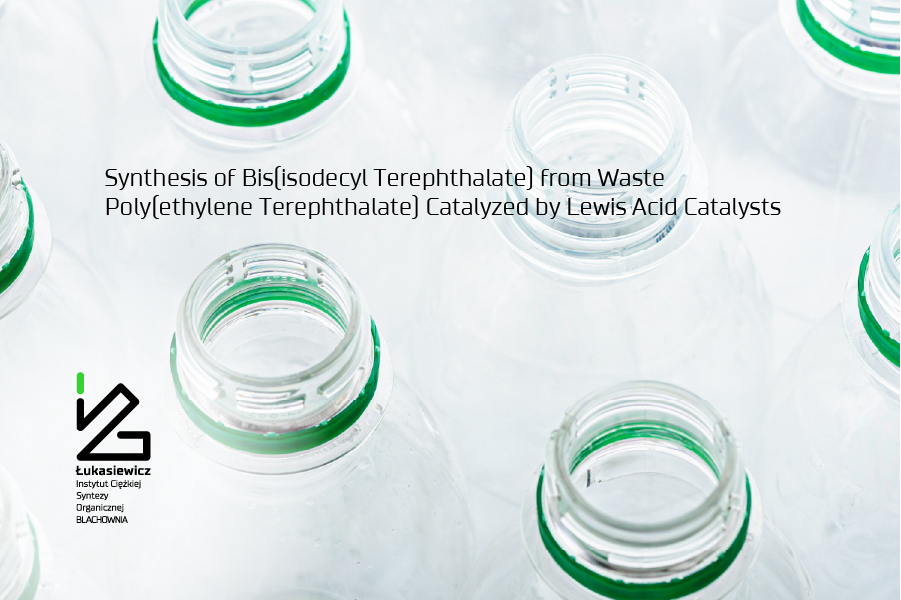The article presents the results of research on the chemical depolymerization of waste poly(ethylene terephthalate) (PET) using isodecyl alcohol. PET is a mass-produced polymer mainly used as packaging material and in the textile industry. A significant portion of waste PET is not subject to recycling, and current recycling methods focus on reusing it in the production of packaging or textiles. The research presented in the article explores the possibility of obtaining higher added-value products from waste polymer. The obtained product (diisodecyl terephthalate) is used as a plasticizer for plastics, particularly for commonly used polyvinyl chloride (PVC).
As part of the research, screening tests of selected Lewis acids as catalysts were conducted to identify an active catalytic system. Using the chosen catalyst (tin(II) oxalate), an application trial was carried out, resulting in a crude plasticizer containing dyes and side products of the reaction, as well as a purified plasticizer.
The plasticizing properties of PVC obtained from the produced plasticizers were investigated, and the results were compared with commercially used plasticizers. The studies demonstrated that the obtained products exhibited similar properties to commercial plasticizers and could serve as their substitutes. The practical application of this method will enhance the recycling rate of waste PET and reduce the demand for pure terephthalic acid used in the production of such plasticizers.
The studies aimed to develop an effective method for recycling polymers present in PET packaging waste, which pose a significant challenge for the circular economy.

 Polski
Polski













